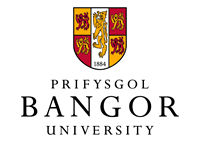About the Project
Location – Bangor University, School of Biological Sciences, with Natural Resources Wales and the Universities of Salford and Hull
Project ID: BUK2147
Annual Stipend: £14, 340
Application Deadline: 20th August 2017
Project Description: Biodiversity is an essential component of aquatic ecosystems and is used to monitor ecosystem health, both from a regulatory perspective and for nature conservation. In Europe, legislative drivers exist that require member states to monitor all water body types, including socio-economically important estuaries. The Water Framework Directive and similar future legislation use a range of biological quality indicators, including fish as key indicator groups to measure ecological status. Nevertheless, fish communities are highly challenging to assess, whether the focus is regulatory biomonitoring, invasive non-native, or rare species. A variety of netting and other monitoring methods exist, but all suffer drawbacks including intensive personnel requirements, taxonomic or ecological bias, logistical challenges and in some cases, mortality of fish.
Macrobial environmental DNA (eDNA) is DNA isolated directly from an environmental sample (e.g. sediment, or water) and in recent years, a growing number of studies have shown that the analysis of fish eDNA provides assessment of fish communities that are as good as, or better than traditional approaches.
While substantial progress has been made in freshwater ecosystems, the aim of this studentship is the further development of an operational eDNA method for monitoring fish communities in ecologically critical estuarine habitats in relation to biomonitoring, non-native invasive and rare species.
Examples of specific objectives would include:1. Identification and development of a suitable laboratory methods and testing effective field sampling techniques in time and space.
2. Compare eDNA data with results from conventionally collected surveys in order to identify strengths and weaknesses of the various techniques.
3. Evaluate the effectiveness of the tool for monitoring Habitats Directive and other species of biodiversity importance in estuaries.
Training will be provided in aquatic eDNA molecular ecology (e.g. metabarcoding), field sampling and monitoring, bioinformatics, population genetics, statistical modelling and scientific communication. Field work will take place around the Welsh coastline, in the first instance. The successful candidate will be hosted by the Molecular Ecology and Fisheries Genetics Laboratory (http://mefgl.bangor.ac.uk/; Profs. Simon Creer, Gary Carvalho and Dr. Mathew Seymour) and Natural Resources Wales (Dr. Tristan Hatton-Ellis), with co-supervision via Prof. Stefano Mariani (Salford) and Dr. Lori Handley (Hull).
Applicants should hold a minimum of a UK Honours Degree at 2:1 level or equivalent in subjects such as Biology, Ecology, Environmental or Natural Sciences. Eligibility is restricted to UK and EU nationals only and candidates with Masters qualifications and First Class Degrees are particularly welcome to apply. If you are interested in applying, we would strongly recommend contacting Prof. Simon Creer as early as possible (http://mefgl.bangor.ac.uk/staff/si.php; [Email Address Removed]; Twitter @spideycreer) and he will be on hand to assist with any questions related to the project and life in the group.
Applications will be achieved via a Motivation Letter, CV (including reference contact details), sent to [Email Address Removed] (cc to Dr Penny Dowdney: [Email Address Removed]) including ‘FISHeEST Application’ in the subject header. Closing date for applications: 20th August 2017 with interviews predicted to take place in the first week of September and the studentship to start 1st October.
Knowledge Economy Skills Scholarships (KESS 2) is a pan-Wales higher level skills initiative led by Bangor University on behalf of the HE sector in Wales. It is part funded by the Welsh Government’s European Social Fund (ESF) convergence programme for West Wales and the Valleys.
Due to ESF funding, eligibility restrictions apply to this scholarship. To be eligible, the successful candidate will need to be resident in the Convergence Area of Wales on University registration, and must have the right to work in the region on qualification.
www.kess2.ac.uk

 Continue with Facebook
Continue with Facebook

